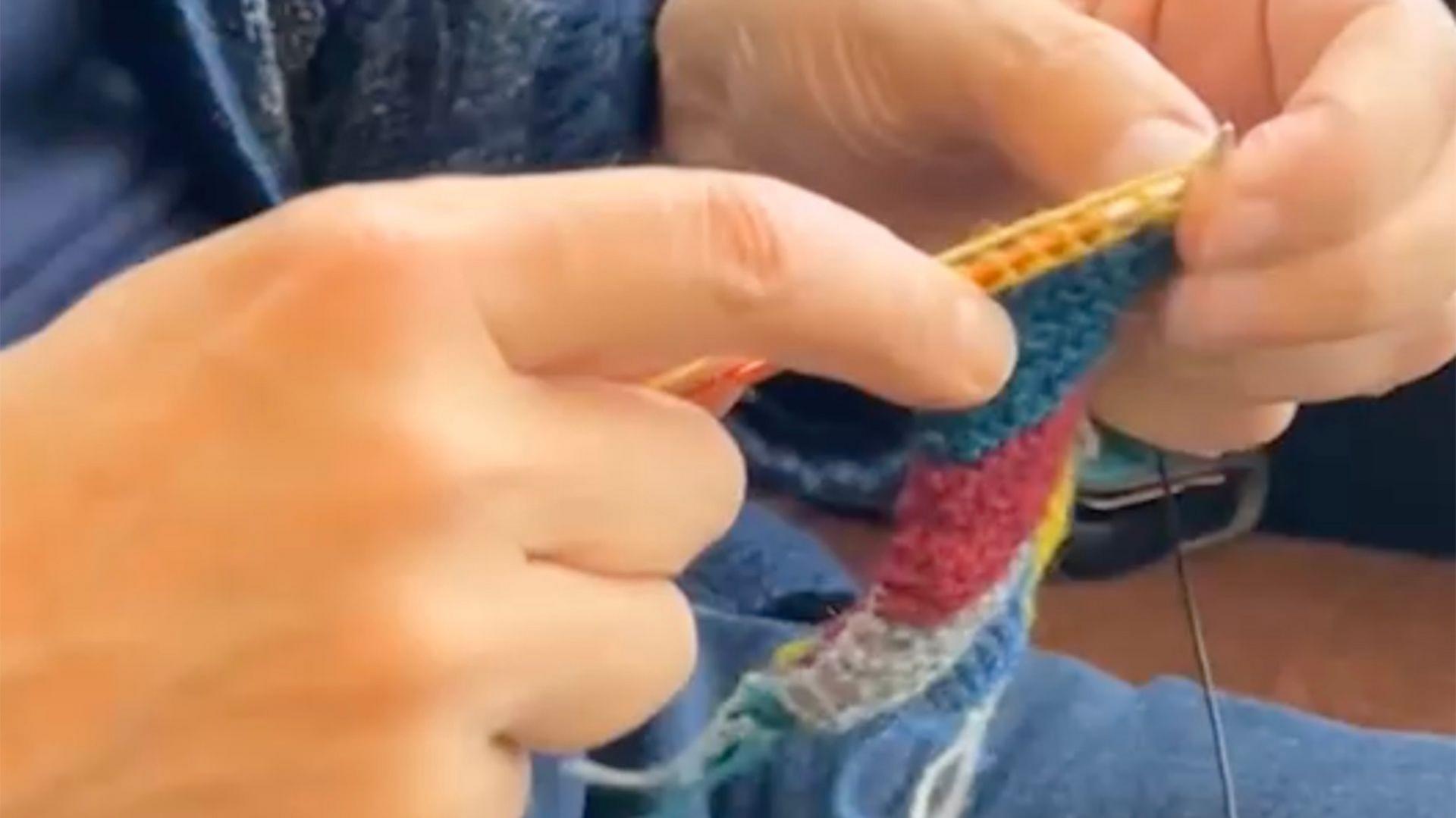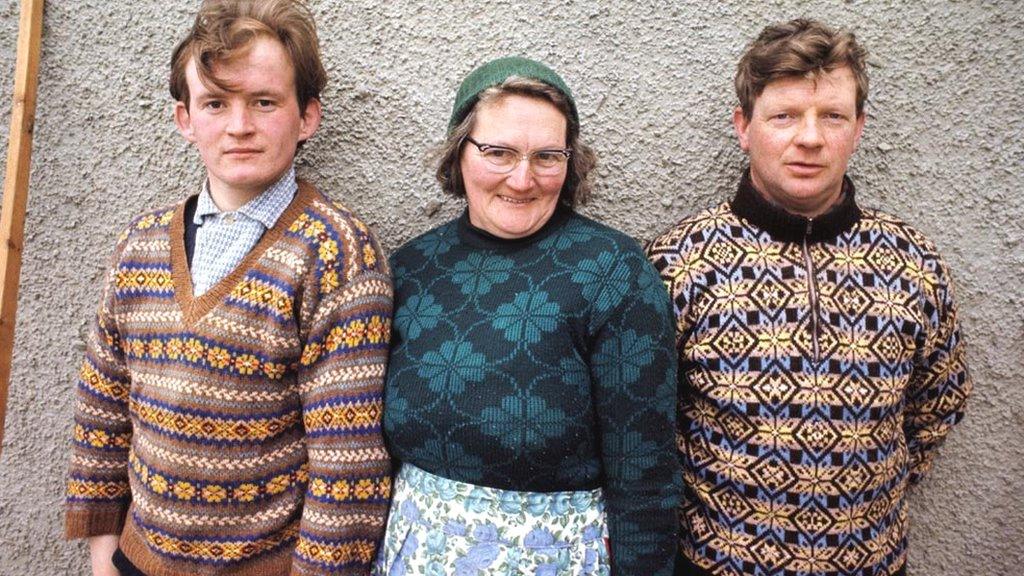We've travelled 5,000 miles to the 'holy place' of knitting
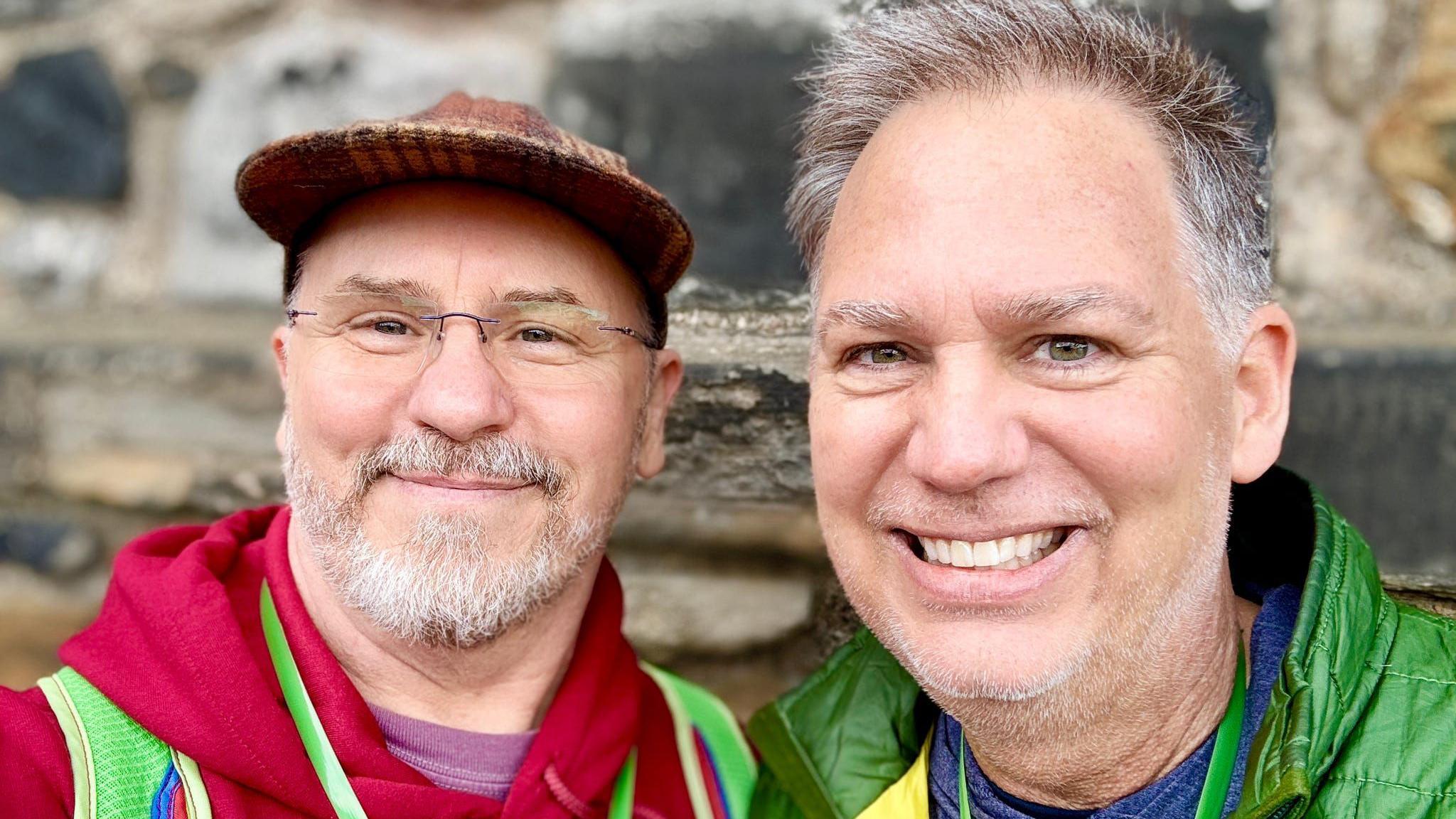
Michael and Chuck were among those on the "knitting retreat" to Shetland
- Published
When Jonathan Berner needed something to keep his hands busy during addiction recovery meetings 15 years ago, he took up knitting.
"I fell in love with the engineering, the history and certainly the fidget-spinner aspect," he told BBC Scotland News.
"It genuinely makes it easier to go through life having that thing to do with my hands."
Since then the American yarn shop owner has found kindred spirits in a group called Men's Knitting Adventures.
And last month they made their first international trip as a group, travelling from their homes across the US to a place they call a "holy place" for knitters - Shetland.
Jonathan, who lives in Seattle, was among 25 men who made the journey to the UK's most northerly islands for their dream knitting trip.
Shetland is renowned around the world for its wool.
It comes from the isles' native breed of sheep and has a reputation for quality, strength and relative softness compared to other types of British wool.
"We talk about wool being part of a culture, but in Shetland wool is the people, and the people are wool," Jonathan, 44, said.
He believes knitting has made it easier for him to connect with society, by spending time with other like-minded knitters.
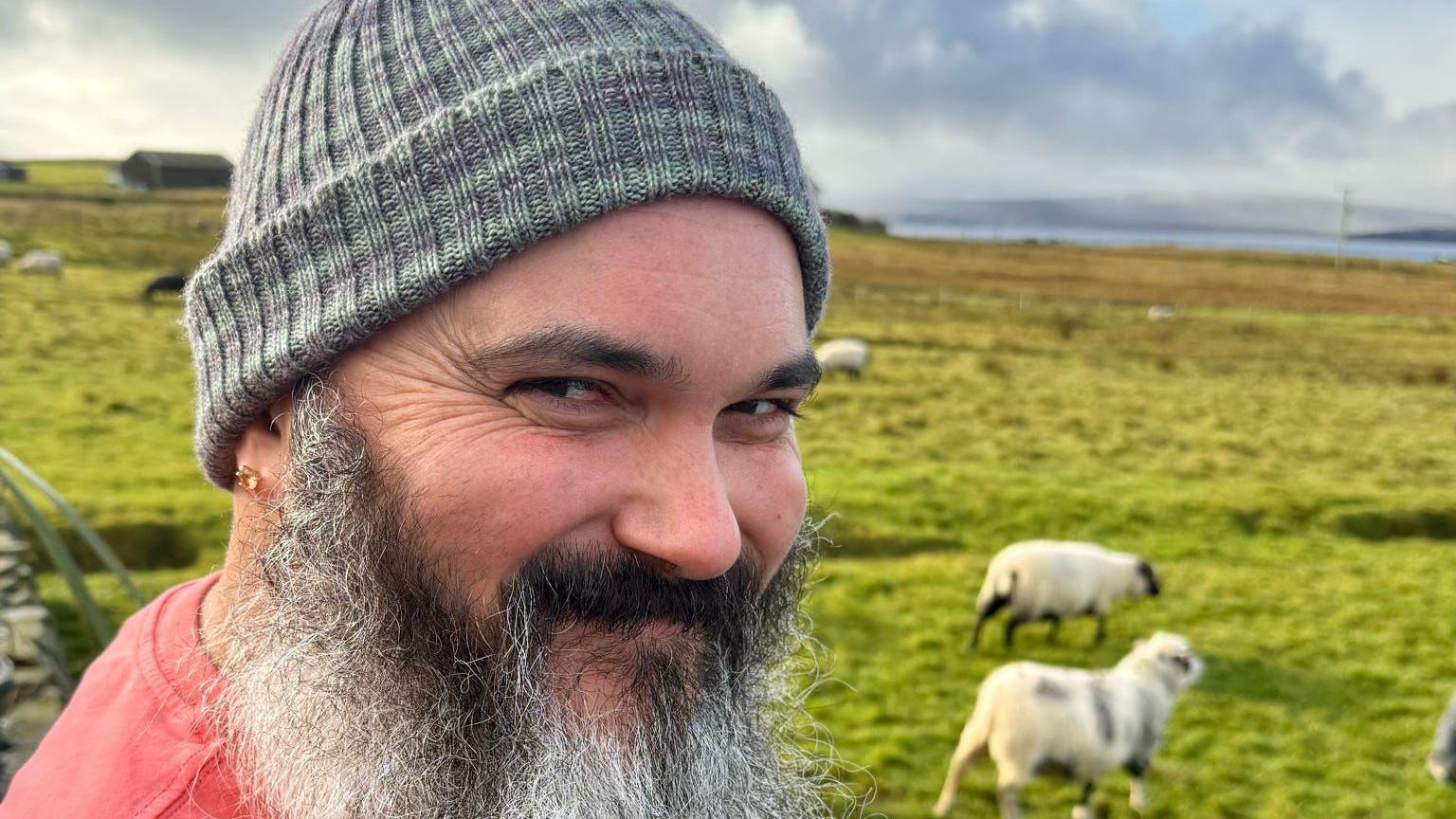
Seattle-based yarn shop owner Jonathan Berner also made the dream trip to Shetland
The group are among thousands of people who travel to Shetland every year to learn about its knitting heritage.
Its textile traditions have been popularised through Wool Week, an annual festival that was set up 16 years ago by local crofters and knitting professionals.
While Jonathan's group narrowly missed out on the celebrations, they were still treated to a traditional Fair Isle knitting belt class, learned about Shetland's history, and even got to spend some time on a croft to see how raw wool is turned into yarn.
Chuck Wilmesher Jr, who founded Men's Knitting Adventures,said the group visited Alaska on a knitting cruise before choosing Shetland as their first international destination.
"I know men used to knit back in the day, for example fishermen used to make their sweaters, but and even in this day it still is a female-dominated field," he said.
"That is why going on a trip with other guys who love what you love and enjoy what you enjoy is just magical, and to take it to somewhere like Shetland is just beyond."
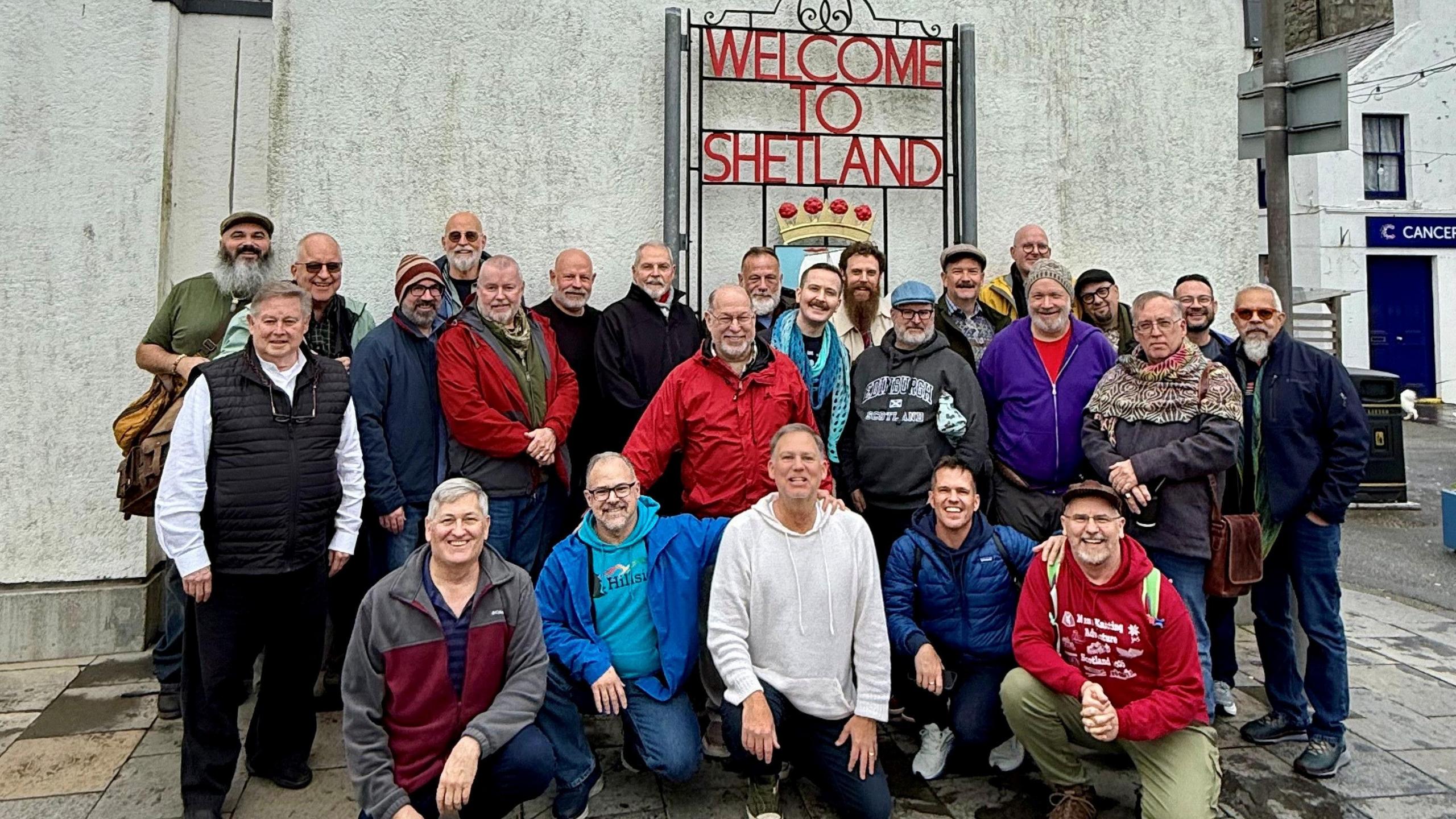
The Shetland trip was the first overseas retreat for Men's Knitting Adventures following a cruise to Alaska
Bringing male knitters together was precisely the reason why Michael Wade, another Shetland retreat participant, founded another knitting group - West Coast Men's Knitting Retreats.
The 58-year-old knitting podcaster said many men felt separated and marginalised because they were the only guys in their knitting circle.
"The retreats were a great way for men from various walks of life to come together and talk about why they love knitting, why it's soothing and why it's creative and inspiring," he added.
For the California-based knitter, distance doesn't play an important role when it comes to retreats - his journey to Shetland was about 5,000 miles long.
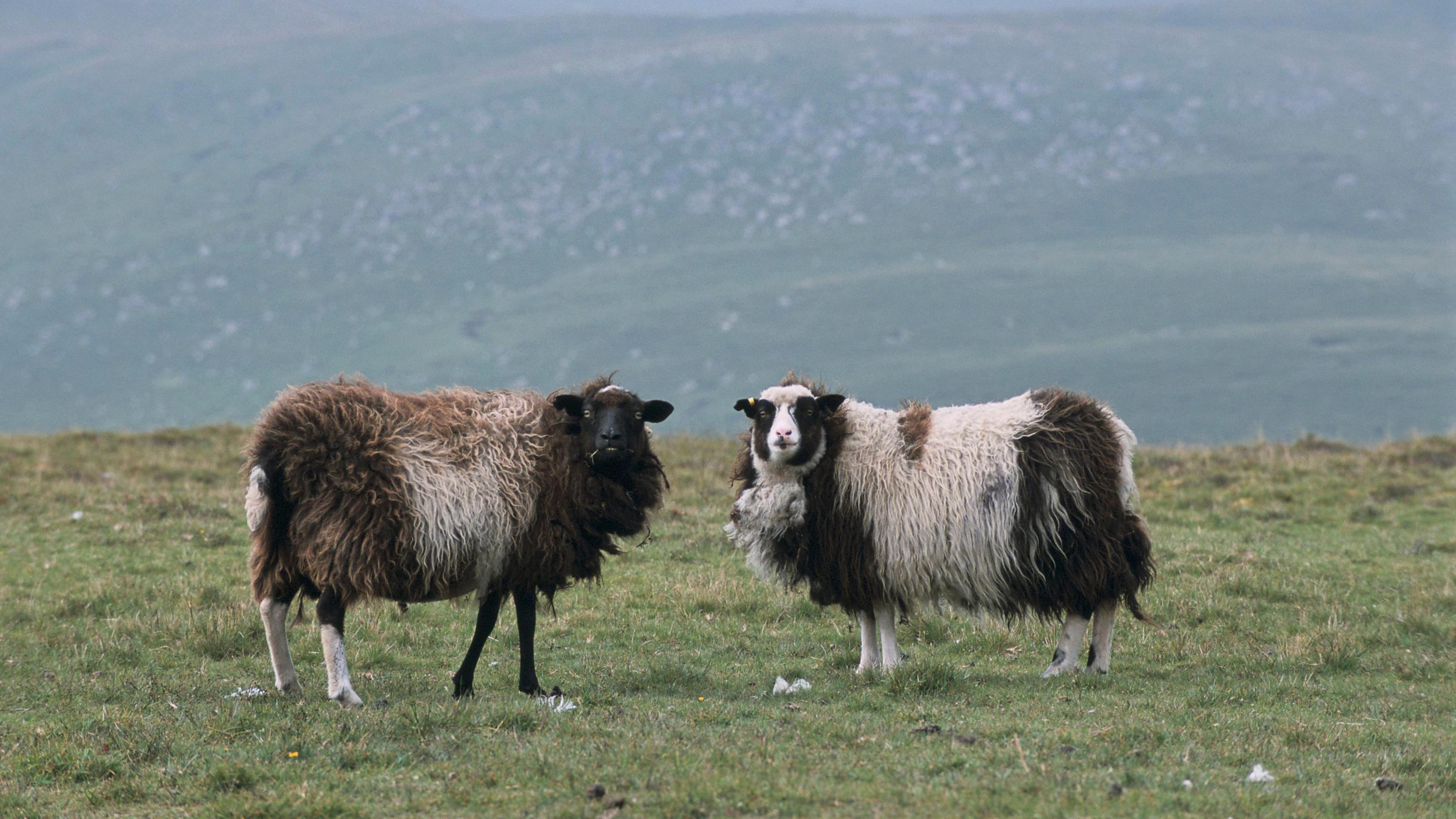
The wool of Shetland sheep is renowned around the world
All three knitters have noticed that crafts like crocheting, knitting and sewing have become more popular in recent years, especially among men.
They credit video tutorials on social media for making patterns and techniques more accessible and easier to understand.
Additionally many people took up crafts during the Covid pandemic to use the sudden spare time productively.
Jonathan's job as a content creator means he has first hand experience of this new wave of knitters.
"I'm seeing a huge number of younger guys, not just the stereotypical gay male knitters, getting into it and I'm thrilled about it," he said
Michael believes the boom in popularity of the craft could increase further.
"I think more men should knit because it makes you slow down," he said.
"It builds patience. It makes you think about the world in different ways and it makes you empathetic to the fact that knitting things is not easy and it sort of makes you have appreciation for how difficult it is to create a garment.
"The world would be better if more men knitted." he added.
- Published5 October
